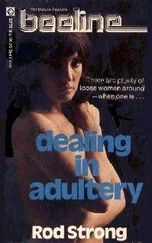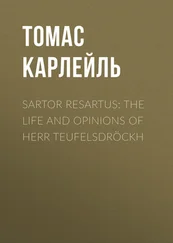Vladimir Nabokov - Strong opinions
Здесь есть возможность читать онлайн «Vladimir Nabokov - Strong opinions» весь текст электронной книги совершенно бесплатно (целиком полную версию без сокращений). В некоторых случаях можно слушать аудио, скачать через торрент в формате fb2 и присутствует краткое содержание. Город: New York, Год выпуска: 1990, Издательство: First Vintage International Edition, Жанр: Классическая проза, на английском языке. Описание произведения, (предисловие) а так же отзывы посетителей доступны на портале библиотеки ЛибКат.
- Название:Strong opinions
- Автор:
- Издательство:First Vintage International Edition
- Жанр:
- Год:1990
- Город:New York
- ISBN:нет данных
- Рейтинг книги:4 / 5. Голосов: 1
-
Избранное:Добавить в избранное
- Отзывы:
-
Ваша оценка:
- 80
- 1
- 2
- 3
- 4
- 5
Strong opinions: краткое содержание, описание и аннотация
Предлагаем к чтению аннотацию, описание, краткое содержание или предисловие (зависит от того, что написал сам автор книги «Strong opinions»). Если вы не нашли необходимую информацию о книге — напишите в комментариях, мы постараемся отыскать её.
Strong opinions — читать онлайн бесплатно полную книгу (весь текст) целиком
Ниже представлен текст книги, разбитый по страницам. Система сохранения места последней прочитанной страницы, позволяет с удобством читать онлайн бесплатно книгу «Strong opinions», без необходимости каждый раз заново искать на чём Вы остановились. Поставьте закладку, и сможете в любой момент перейти на страницу, на которой закончили чтение.
Интервал:
Закладка:
BROCK BROWER
The «sociopolitical nature» of Mr. Brower's tribute to Lolita, far from being repugnant to me (as he modestly assumes), is more than redeemed by the specific precision of his artistic touch.
IRWIN SHAW
In his «Advice to a Young Writer», Mr. Shaw draws his examples from the life, labors, and luck of «Vladimir N., perched on a hill in Switzerland». To Irwin S., perched on a nottoodistant hill, I send by Alpine Horn my best greetings.
JAY NEUGEBOREN
In a very pretty little poem, Mr. Neugehoren seems to
rhyme, somewhat surprisingly, «Nabokov» and «love». I would suggest «talk of» or «balk of» as more closely conforming to the stressed middle vowel of that awkward name («Nabawkof»). I once composed the following rhyme for my students:
The querulous gawk of
A heron at night
Prompts Nabokov
To write
RICHARD GILMAN
Mr. Gilman's tribute to Ada comes at a time when I still think that of all my books it is the one that corresponds most exactly to its fore-image; and therefore I cannot help being affected by his kind words.
GEORGE P. ELLIOTT
Among my short stories, «Signs and Symbols» still remains an old favorite of mine. I am happy that Mr. Elliott has singled it out for comment with a phrase from Ada heading his pithy piece.
ALFRED KAZIN
A final splendid salute comes from one of my friendliest readers. It ends on an emotional note which I inwardly respond to without being able to formulate my response with Mr. Kazin's force and feeling.
Written on March 10, 1970, and published in the Supplement to TnQuarterly 17, Northwestern University Press, 1970.
ROWE'S SYMBOLS
«It appears», says Mr. Rowe* in his Introduction, «that Nabokov — partially by means of the mechanisms revealed below — will continue to flutter the pulses of his readers for some time».
* William Woodin Rowe: Nabokov's Deceptive World. New York University Press, 1971, 193 pp.
«The mechanisms revealed below» is a pretty phrase, suggesting perhaps more than its author intends, but it does not quite apply to me. The purpose of the present review is not to answer a critic but to ask him to remove his belongings. The book consists of three parts. Whilst I have no great quarrel with the first two, entitled «A Touch of Russian» and «N. as Stage Manager», I must protest vehemently against a number of indecent absurdities contained in the third part, entitled «Sexual Manipulations».
One may wonder if it was worth Mr. Rowe's time to exhibit erotic bits picked out of Lolita and Ada — a process rather like looking for allusions to aquatic mammals in Moby Dick. But that is his own choice and concern. What I object to is Mr. Rowe's manipulating my most innocent words so as to introduce sexual «symbols» into them. The notion of symbol itself has always been abhorrent to me, and I never tire of retelling how I once failed a student — the dupe, alas, of an earlier teacher — for writing that Jane Austen describes leaves as «green» because Fanny is hopeful, and «green» is the color of hope. The symbolism racket in schools attracts computerized minds but destroys plain intelligence as well as poetical sense. It bleaches the soul. It numbs all capacity to enjoy the fun and enchantment of art. Who the hell cares, as Mr. Rowe wants us to care, that there is, according to his italics, a «man» in the sentence about a homosexual Swede who «had embarrassing manners» (p. 148), and another «man» in «manipulate» (passim)? «Wickedly folded moth» suggests «wick» to Mr. Rowe, and «wick», as we Freudians know, is the Male Organ. «I» stands for «eye», and «eye» stands for the Female Organ. Pencil licking is always a reference to you know what. A soccer goal hints at the vulval orifice (which Mr. Rowe evidently sees as square).
I wish to share with him the following secret: In the case of a certain type of writer it often happens that a whole paragraph or sinuous sentence exists as a discrete organism, with its own imagery, its own invocations, its own bloom, and then it is especially precious, and also vulnerable, so that if an outsider, immune to poetry and common sense, injects spurious symbols into it, or actually tampers with its wording (see Mr. Rowe's crass attempt on his page 113), its magic is replaced by maggots. The various words that Mr. Rowe mistakes for the «symbols» of academic jargon, supposedly planted by an idiotically sly novelist to keep schoolmen busy, are not labels, not pointers, and certainly not the garbage cans of a Viennese tenement, but live fragments of specific description, rudiments metaphor, and echoes of creative emotion. The fatal flaw in Mr. Rowe's treatment of recurrent words, such as «garden» or «water», is his regarding them as abstractions, and not realizing that the sound of a bath being filled, say, in the world of Laughter in the Dark, is as different from the limes rustling in the rain of Speak, Memory as the Garden of Delights in Ada is from the lawns in Lolita. If every «come» and «part» on the pages of my books is supposedly usedfey me to represent «climax» and «genitals», one can well imagine the naughty treasures Mr. Rowe might find in any French novel where the prefix «con» occurs so frequently as to make every chapter a veritable compote of female organs. I do not think, however, that his French is sufficient for such feasts; nor is his Russian good enough for his manipulations if he believes that «otblesk» (confused apparently with otliv) means «low tide» (page 111) or that the nonexistent «triazh» stands for «tyranny» (page 41) when actually the word that I used (and that he wrongly transcribed), tirazh, is merely a publisher's term for «circulation».
One can excuse a critic for not finding «stillici and «ganch» in his abridged dictionary and concluding that I invented those words; one can understand a dull r Invitation to a Beheading thinking that the executioner] ops a homosexual tenderness for his victim when that affectionate look reflects only the lust or a coveting a live chicken; but what I find unpardonal indeed unworthy of a scholar, is Mr. Rowe's twist discussion of prosody (as appended to my tr; Eugene Onegin) into a torrent of Freudian drivel,! allows him to construe «metrical length» as an erected «rhyme» as a sexual climax. No less ludicrous f» his examination of Lolita's tennis and his claim that ** balls represent testicles (those of a giant albino, no Passing on to my reference to chess problems mU}peak,Memory Mr. Rowe finds «sexual analogies» in such m rases as «mating devices» and «grnp'ng f°r a pavrn in the box» — all of which is as much an insult to chess as to the problemist. I
The jacket of Mr. Rowe's book depicts jl butterfly incongruously flying around a candle. Moths, not butterflies, are attracted to light but the designer's blunder neatly
illustrates the quality of Mr. Rowe's preposterous and nasty interpretations. And he will be read, he will be quoted, he will be filed in great libraries, next to my arbors and mists!
Written at Gstaad, Bernese Oberland, on August 28, 1971, and published in The New York Review on October 7 of the same year.
INSPIRATION
(written on November 20, 1972, for Saturday Review)
The awakening, quickening, or creative impulse, esp. as manifested in high artistic achievement.
Webster, Second Ed., unabridged, 1957
The enthusiasm that sweeps away (entraine) poets. Also a term of physiology (insufflation): «. . . wolves and dogs howl only by inspiration; one can easily ascertain this by causing a little dog to howl close to one's face (Buffon)».
Littre, id. intigrak, 1963
Читать дальшеИнтервал:
Закладка:
Похожие книги на «Strong opinions»
Представляем Вашему вниманию похожие книги на «Strong opinions» списком для выбора. Мы отобрали схожую по названию и смыслу литературу в надежде предоставить читателям больше вариантов отыскать новые, интересные, ещё непрочитанные произведения.
Обсуждение, отзывы о книге «Strong opinions» и просто собственные мнения читателей. Оставьте ваши комментарии, напишите, что Вы думаете о произведении, его смысле или главных героях. Укажите что конкретно понравилось, а что нет, и почему Вы так считаете.










